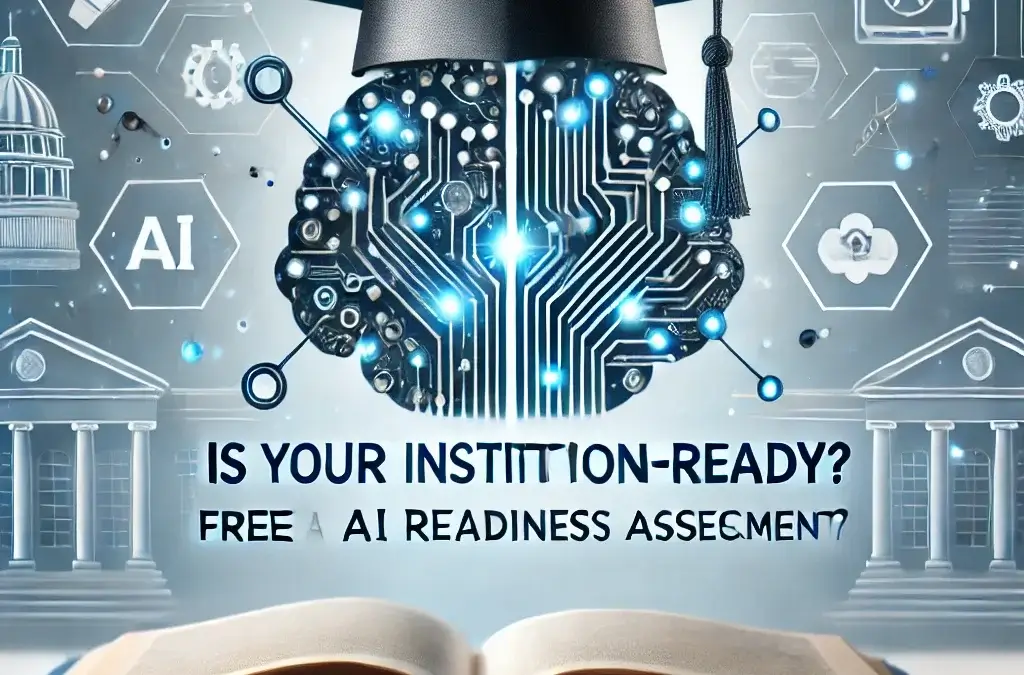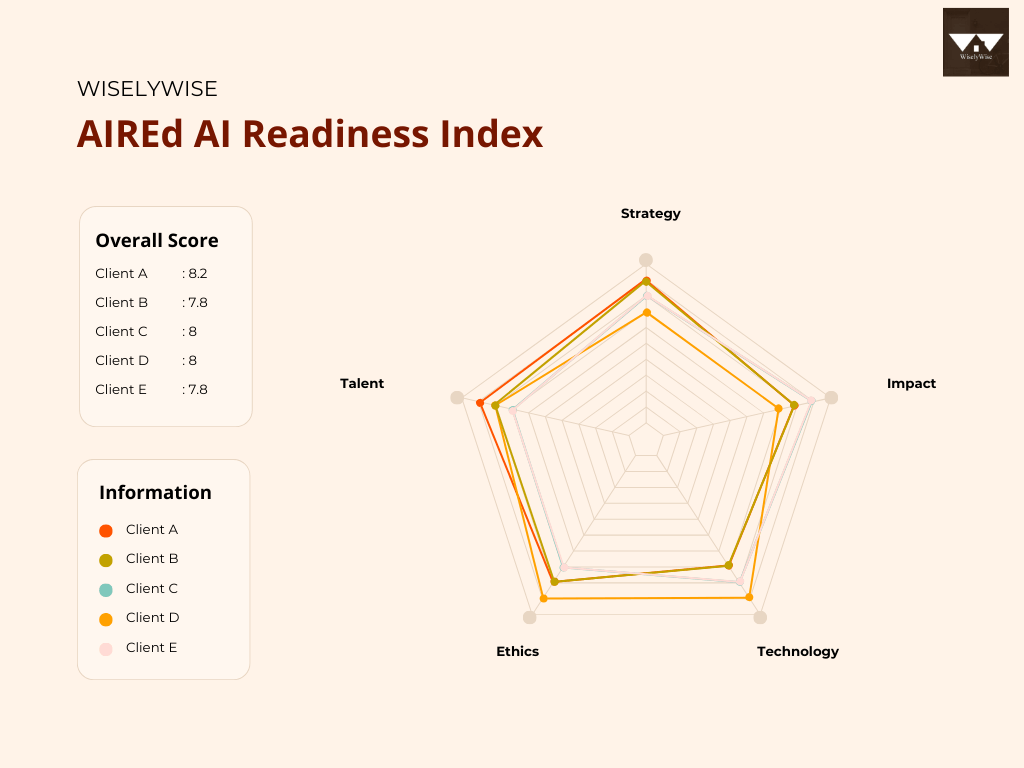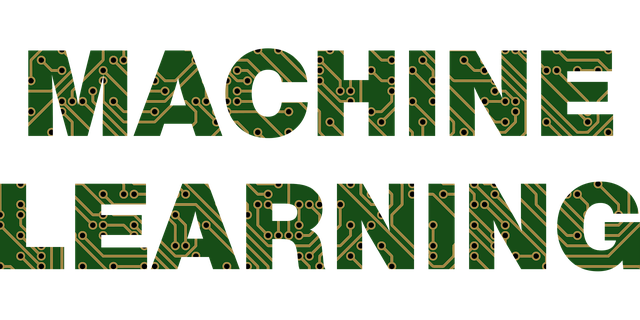
How To Effectively Implement AI Tools in Education
How To Effectively Implement AI Tools in Education

AI tools for education are reshaping the ways in which teachers engage with students and manage their responsibilities. As educators strive to create personalized learning experiences and foster student engagement, effectively implementing these technologies is essential. This blog post serves as your comprehensive guide to incorporating AI tools into your teaching strategies.
We will explore the numerous benefits of AI in education, such as enhancing student engagement and alleviating administrative burdens. Additionally, we will address potential challenges that may arise during integration.
Throughout this post, we will feature some of the best AI tools available for educators and provide practical strategies for their smooth incorporation into the classroom. Whether you are a seasoned educator or embarking on your teaching journey, you will find valuable insights to harness the power of AI in education. Get ready to elevate your teaching approach and unlock new opportunities for learning!
AI Tools for Education
The integration of AI tools for education is revolutionizing how students learn and interact within the classroom. These innovative applications not only enhance student engagement but also streamline administrative tasks for educators across all levels. By implementing AI solutions, schools can create learning environments that are engaging, efficient, and tailored to meet the needs of individual students.
One of the key benefits of AI tools for education is their ability to personalize learning experiences. Intelligent tutoring systems adapt content dynamically, ensuring that each student receives the guidance they need to stay engaged and improve retention. This personalized approach keeps students motivated and actively involved in their education.
Data analytics plays a crucial role in this process as well. By examining student interaction data, educators can uncover learning patterns and identify specific challenges. For example, real-time analytics can highlight areas where students are struggling, allowing teachers to intervene promptly and provide the necessary support. This proactive approach helps foster a more nurturing learning environment.
In addition to enhancing learning, AI tools also improve administrative efficiency. Tasks such as grading and scheduling can be automated, freeing up educators to focus more on teaching and mentoring. This not only saves time but also optimizes resource allocation within schools.
As AI technology continues to evolve, it is reshaping traditional classrooms into collaborative learning spaces. AI-driven platforms encourage group projects and peer evaluations, enhancing student collaboration and social interaction.
Many educators are beginning to see the benefits of these tools, with 73% believing that AI will positively influence student learning in the future. This growing confidence highlights the potential of AI as a valuable resource in education.
In conclusion, AI tools for education are enhancing student outcomes while supporting teachers in transforming the learning experience. In the next section, we will explore specific AI tools available for educators and their practical benefits in today’s educational landscape.
Top AI Tools for Educators
Classrooms are evolving, and AI tools for education are enhancing learning experiences. Here’s a concise overview of the leading AI tools currently transforming education.
Chatbots are one significant innovation, with tools like ChatGPT providing automated responses to student inquiries, assisting with grading, and offering personalized tutoring. Their natural language processing enables engaging interactions across various topics.
Another key development is Intelligent Tutoring Systems, such as Carnegie Learning and Knewton. These systems adapt to each student’s learning pace and style, delivering tailored feedback that boosts comprehension and retention. Research indicates that personalized learning can increase achievement by around 30%.
Learning Management Systems (LMS) also play a vital role. AI-supported platforms like Canvas and Blackboard utilize data analytics to monitor student performance and create adaptive learning pathways, helping educators swiftly identify at-risk students.
AI-Powered Assessment Tools, such as Gradescope, further streamline education by leveraging machine learning for grading. This saves educators time while ensuring fair assessments, with some reporting up to a 50% reduction in grading time.
Finally, gamification and adaptive learning tools like DreamBox Learning enhance engagement by incorporating gamified elements. These tools track progress and personalize challenges for students, promoting an interactive learning environment.
Overall, these AI tools for education improve engagement, inform teaching practices, and strengthen communication between students and educators. By automating repetitive tasks and personalizing lessons, they enable teachers to focus more on inspiring their students.
Benefits of AI Tools for Education
AI tools for education are transforming the learning environment by providing personalized learning experiences. These tools tailor instruction to meet individual student needs, developing customized lesson plans that align with each learner’s pace and style. For instance, machine learning platforms evaluate student performance data in real-time, adjusting content and strategies to ensure every student can achieve their full potential.
In addition to personalized learning, AI tools enhance student engagement through interactive technologies. Virtual reality and gamified learning apps cultivate immersive experiences that make studying more enjoyable. Research shows that more than 70% of students report greater interest in their studies when AI tools are integrated into the classroom, demonstrating the significant impact of these innovations on motivation and participation.
Furthermore, AI tools help streamline administrative tasks for educators. By automating processes like grading and attendance tracking, teachers can focus on instruction and building relationships with students. This reduction in administrative workload improves the overall quality of education, allowing for deeper connections between students and teachers. AI-powered grading systems, for example, can assess student work in minutes, accelerating feedback and assessment processes.
AI tools also bring valuable data analytics capabilities to educators, enabling them to fine-tune their teaching strategies and curriculum. By evaluating a variety of data sources, educators gain insights into learning outcomes, allowing them to adapt their methods accordingly. This data-driven approach ensures that educational practices evolve continuously to meet the changing needs of students.
While the benefits of AI tools for education are vast, it is important to consider the challenges associated with implementing these technologies. In the next section, we will explore the potential obstacles that educational institutions may face when adopting AI tools.
Challenges and Considerations
The growing use of AI tools for education presents several challenges that need to be addressed for effective implementation. One major concern is data privacy. Educators must understand how student data is managed by these tools to ensure privacy is protected. This issue emphasizes the need for secure systems that maintain student confidentiality.
Another significant challenge is academic integrity. The use of AI can lead students to misrepresent AI-assisted work as their own, which raises concerns about originality. In addition, biases in AI training data may yield distorted results that negatively affect learning outcomes. A considerable percentage of teachers express worry about how these biases might influence assessments and teaching practices.
Moreover, proper training for educators on utilizing AI tools is essential. Many teachers report feeling unprepared to integrate these technologies into their classrooms, highlighting a gap in professional development. Providing necessary resources and support will boost educators’ confidence and enhance the positive impact of AI tools for education.
In conclusion, while AI tools for education offer numerous advantages, it is crucial to address the challenges of data privacy, academic integrity, and educator training. By carefully navigating these issues, we can foster the successful integration of AI in education.
AI Integration Strategies
Integrating AI tools for education requires thoughtful planning to benefit both educators and students. Here are key strategies to successfully incorporate AI into educational systems:
First, focus on curriculum development by identifying educational outcomes that AI can enhance. Leverage AI tools to assess student performance, creating customized learning paths that adapt to individual learning speeds and styles. This personalization fosters a more effective learning experience.
Next, prioritize professional development for educators. For AI integration to succeed, educators must feel comfortable with these technologies. Regular training on AI tools and effective teaching strategies is essential. Keeping teachers updated on the latest AI advancements empowers them to utilize these tools thoughtfully.
Another crucial aspect is fostering AI literacy among students. Educating learners about AI technologies equips them with critical thinking skills. Lessons on how AI works and its implications enable students to evaluate AI-generated content and recognize ethical challenges.
Consider implementing pilot programs in selected classrooms to test AI tools before a broader rollout. This approach allows educators to collect feedback from students, enhancing the understanding of AI’s impact on learning.
Additionally, AI tools can facilitate collaborative learning. By analyzing group dynamics, these platforms enhance communication skills and build a sense of community among learners, thereby enriching the educational experience.
Continuous assessment and feedback are also vital. Real-time AI tools can analyze student performance data quickly, providing teachers with insights that inform instruction and identify students requiring extra support.
Finally, address ethical considerations surrounding AI in education. Educating students about privacy, bias, and responsible AI use is essential. Establishing guidelines ensures that students understand their data rights and responsibilities.
By implementing these strategies, educational systems can create an environment that maximizes the potential of AI tools for education. Organizations like WiselyWise play a crucial role in facilitating these strategies, providing valuable resources for effective AI integration.
The Role of WiselyWise in Education
WiselyWise is transforming education through AI tools for education that significantly enhance learning experiences. Their mission focuses on developing custom AI solutions tailored to the unique challenges that educational institutions face today.
Among the innovative tools offered by WiselyWise are Maya Sales AI and Maya Customer Service AI. Maya Sales AI assists institutions in managing enrollment while understanding student needs more effectively, allowing schools to tailor their offerings. Meanwhile, Maya Customer Service AI provides real-time support, enhancing communication by promptly addressing inquiries from students and parents.
Utilizing WiselyWise’s AI tools presents numerous benefits. Research indicates that these AI solutions can improve efficiency by up to 30%, enabling educators to focus more on teaching than on administrative tasks. Furthermore, data-driven engagement strategies foster improved student retention, which contributes to overall academic success.
Looking ahead, the integration of AI tools for education, such as those from WiselyWise, promises to revolutionize the educational landscape. These advancements not only enhance existing systems but also introduce innovative teaching methods that accommodate diverse student needs, ultimately shaping the future of learning in a digital age.
Future Considerations for AI in Education
AI tools for education are poised to revolutionize classrooms. As educators adopt these technologies, they will significantly enhance personalized learning pathways and create more engaging environments for students.
These AI tools enable a more interactive classroom experience by analyzing student performance. They provide customized learning experiences that adapt in real-time based on feedback, allowing students to improve their skills effectively. This tailored approach increases student engagement, as learners find personalized content resonates more with their individual needs.
Despite the benefits, integrating AI in education brings ethical challenges. Concerns such as data privacy, equitable access to technology, and algorithmic bias must be carefully considered. It is crucial for educators to implement AI solutions that promote educational equity, ensuring every student develops the skills necessary to use AI responsibly.
In summary, while AI tools for education can enhance learning and increase engagement, addressing ethical challenges is critical. By proactively preparing for these considerations, educators can harness the full potential of AI, fostering a more inclusive and effective educational landscape.
Conclusion
The integration of AI tools for education presents a significant opportunity for educators and students alike. In this article, we explored various AI tools, highlighting their benefits such as personalized learning and increased engagement. We also addressed the challenges associated with their use. Effectively integrating these tools is crucial, and support from organizations like WiselyWise can help overcome obstacles, enabling educators to fully utilize their potential.
As you reflect on these insights, consider how to implement AI tools in your educational environment. Begin by experimenting with new applications and providing staff training in AI literacy. Every small step can enhance the learning experience. By embracing these innovative tools, you can foster a teaching environment that promotes student success.
Ultimately, using AI tools for education is not just about technology; it’s about enhancing the learning journey for all participants. Take proactive steps now to join the educational revolution that AI offers!
About WiselyWise
WiselyWise specializes in providing advanced AI-driven solutions aimed at enhancing workforce capabilities and driving business growth across various sectors, including education and corporate environments.
With a focus on customized AI tools like Maya Sales AI and Maya Customer Service AI, WiselyWise empowers organizations to streamline operations and achieve measurable improvements in efficiency and productivity.
Discover how WiselyWise can transform your organization by visiting wiselywise.com today! You can also Chat with Maya here !









Recent Comments